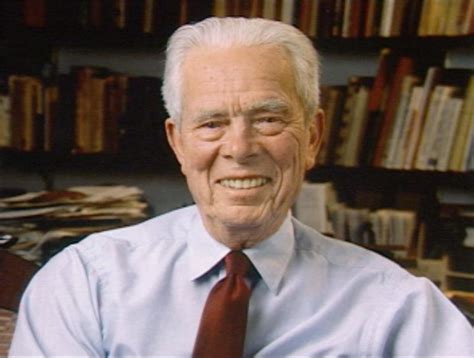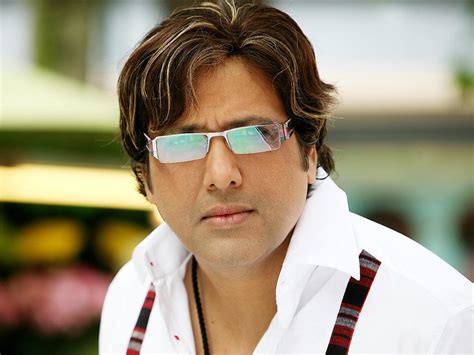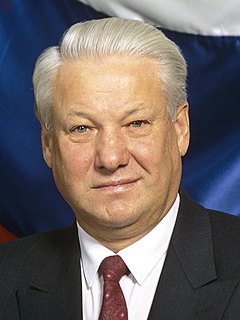Top 914 Humanitarian Intervention Quotes & Sayings
Explore popular Humanitarian Intervention quotes.
Last updated on April 14, 2025.
On humanitarian intervention in general, I guess my view is not unlike the view that was attributed to Gandhi, accurately or not, when he was supposedly asked what he thought about western civilization. He is supposed to have said that he thought it would be a good idea. Similarly, humanitarian intervention would be a good idea, in principle.
All these wars are similar in the way ideology is being used. It's the ideology of so-called humanitarian intervention. We don't want to do this, but we're doing this for the sake of the people who live there. This is, of course, a terrible sleight of hand because all sorts of people live there, and, by and large, they do it to help one faction and not the other.
I see nothing wrong ethically with the idea of correcting single gene defects through genetic engineering. But I am concerned about any other kind of intervention, for anything else would be an experiment, which would impose our will on future generations and take unreasonable chances with their welfare ... Thus such intervention is beyond the scope of consideration.
What kind of world does the humanitarian contemplate as affording him full scope? It could only be a world filled with breadlines and hospitals, in which nobody retained the natural power of a human being to help himself or to resist having things done to him. And that is precisely the world that the humanitarian arranges when he gets his way.
What if the Soviet intervention was a blessing in disguise? It saved the myth that if the Soviets were not to intervene, there would have been some flowering authentic democratic socialism and so on. I'm a little bit more of a pessimist there. I think that the Soviets - it's a very sad lesson - by their intervention, saved the myth.
But, you will say, we destroy the most hallowed of relations, when we replace home education by social.... The Communists have not invented the intervention of society in education; they do but seek to alter the character of that intervention, and to rescue education from the influence of the ruling class.
The humanitarian wishes to be a prime mover in the lives of others. He cannot admit either the divine or the natural order, by which men have the power to help themselves. The humanitarian puts himself in the place of God.
But he is confronted by two awkward facts; first, that the competent do not need his assistance; and second, that the majority of people positively do not want to be "done good" by the humanitarian. Of course, what the humanitarian actually proposes is that he shall do what he thinks is good for everybody. It is at this point that the humanitarian sets up the guillotine.
The beneficial effect of state intervention, especially in the form of legislation, is direct, immediate, and so to speak, visible, while its evil effects are gradual and indirect and lay out of sight ... Hence the majority of mankind must almost of necessity look with undue favor upon governmental intervention.
We destroy the most hallowed of relations, when we replace home education by social.And your education! Is not that also social, and determined by the social conditions under which you educate, by the intervention, direct or indirect, of society, by means of schools, etc.? The Communists have not invented the intervention of society in education; they do but seek to alter the character of that intervention, and to rescue education from the influence of the ruling class.
If, for example, existing government intervention is minor, we shall attach a smaller weight to the negative effect of additional government intervention. This is an important reason why many earlier liberals, like Henry Simons, writing at a time when government was small by today's standards, were willing to have government undertake activities that today's liberals would not accept now that government has become so overgrown.
Hoping to garner the support of the American people, proponents of regime-change wars routinely cite humanitarian concerns to justify military intervention in foreign countries. But here is the reality: As a direct result of our intervention in Iraq and the overthrow of Saddam Hussein, human suffering increased dramatically.
This year marks 20 years since the Rwandan genocide -- the world's greatest humanitarian tragedy of the late 20th century. The international community had pledged 'never again' in the aftermath of the genocide in the former Yugoslavia and Rwanda in the 1990s. Yet, we are witnessing today a different type of humanitarian disaster unfolding in Syria and Iraq.
There's a lot of expectation in the Middle East that post-Obama there will be a sort of tougher U.S. line on Assad, there will be more intervention and so forth. But I don't know if that's going to be fulfilled. If there is more intervention, then I think it's going to go the same way as these other interventions that we've seen in Iraq, we've seen, to a degree, in Syria, we've seen in Libya, you know, that they do really badly. They make bad situations worse.
Market bashers ... might understand the claim that in some particular field, markets required no intervention--though they'd be skeptical--but the notion that, on general principle, complex systems ran themselves just fine without benign intervention seemed like it could only be the product of a quasi-religious faith. ... Of course, this gets things almost precisely backwards. It is the idea that all order must be explained by a functioning mind at the helm, not its denial, that has the closet affinity to the religious instinct.
I mean, you can agree or disagree with Iraq or Afghanistan, but by the way, now the great campaigning cause out there is the absence of intervention in Syria. And then in Libya, it's partial intervention. And that doesn't really explain why some countries that have literally nothing to do with the interventions in the Middle East end up getting targeted.
Intervention in Syria is not an option. President Obama has already helped foment this civil war and supported the al-Qaeda jihadists. This is an explosive region, and more US intervention means more people will die. We should be choosing peace - not a new conflict. More so than anyone else, my supporters know that America cannot afford another unlawful, immoral war in the Middle East. Stand with me and tell President Obama to stay out of Syria.
I believe that during the intervention of NATO in Kosovo there is an element nobody can question: the air attacks, the bombs, are not caused by a material interest. Their character is exclusively humanitarian: What is at stake here are the principles, human rights which have priority above state sovereignty. This makes it legitimate to attack the Yugoslav Federation, although without the United Nations mandate.
Human rights and international criminal law both illustrate the contradictory potential of international law. On one level, the imposition of human rights norms is a restraint on interventionary diplomacy, especially if coupled with respect for the legal norm of self-determination. But on another level, the protection of human rights creates a pretext for intervention as given approval by the UN Security Council in the form of the R2P (responsibility to protect) norm, as used in the 2011 Libyan intervention. The same applies with international criminal accountability.
Sometimes people say to me, 'Well, what was the difference between Kosovo, which was a successful intervention, and Iraq and Afghanistan that have been so difficult?' And the answer is perfectly simple. In Kosovo, you have, after the removal of the loss of its regime, you had a process of political and economic reconstruction that took its part without the intervention of terrorism. If you had the intervention of terrorism, by the way, it would have been extremely difficult there - but we didn't.
They think my father has a lack of concern for human rights, but regardless of details, the Americans should be humanitarian in dealing with his family, because we are human. Saddam has three young ladies and they have children, I have five, Rana has four, and Hala has two. Therefore, our father is very dear to us. His grandchildren love him a lot. Why aren't humanitarian factors taken into account?
















































